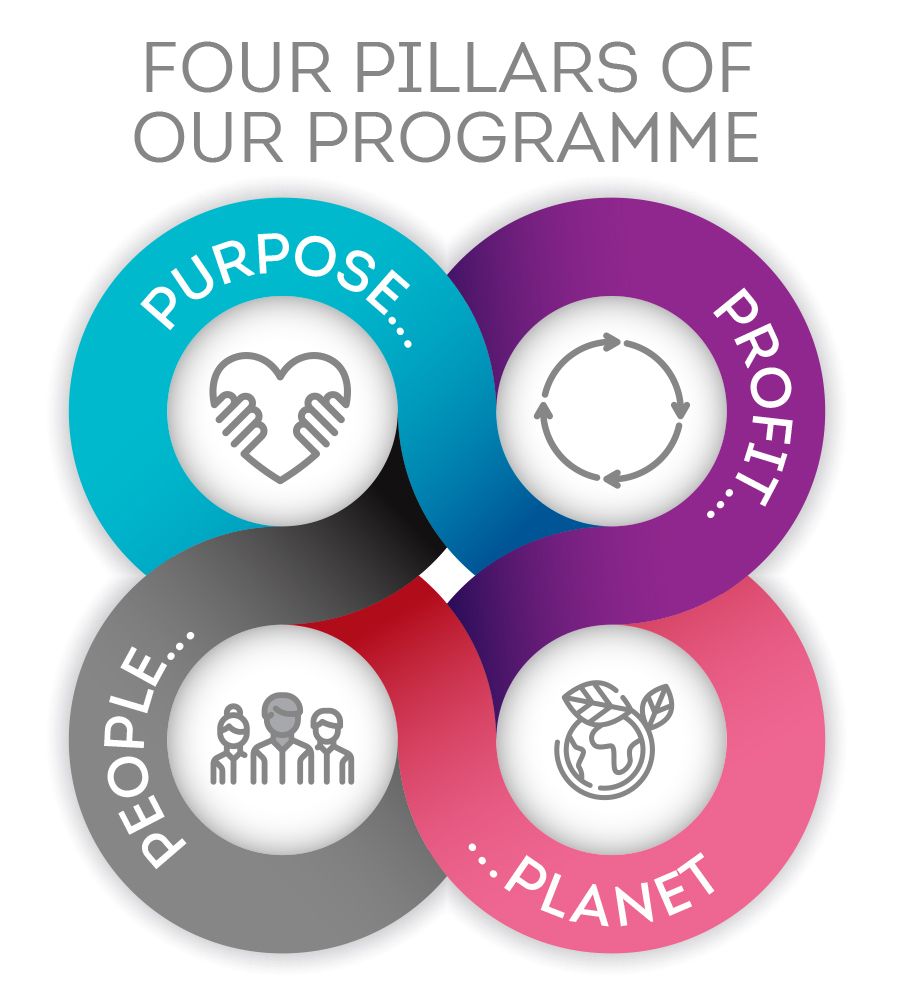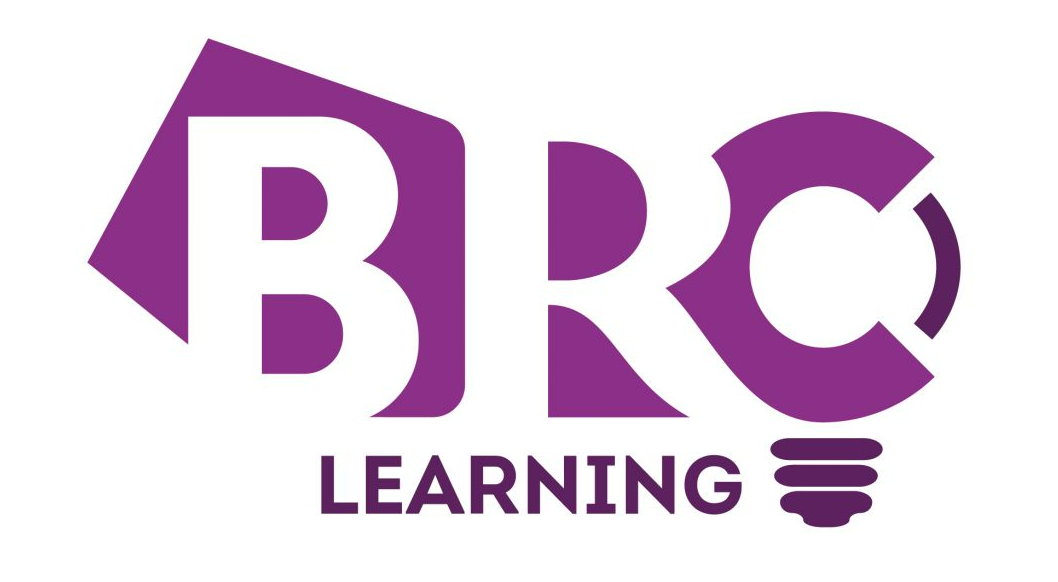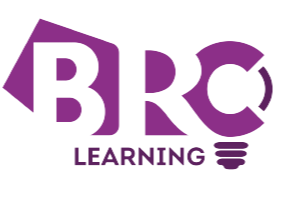The evolution of Summer School: from Oxford Summer School to BRC Leaders Summer School
Our first opportunity to bring new content to the table,
under the BRC, was 2021. This involved moving away from traditional retailing and
introduce our concept of the four lenses: People, Profit, Planet and Purpose.
Since then, we’ve spent a considerable amount of time
tightening up the eLearning content. This involved investing in professional design,
filming, and upgrading sections with the latest trends and insight from BRC
thought leaders. We also introduced the BRC Learning App allowing delegates to
access the new learning content from their devices, making it much more
accessible.
Unfortunately, due to the pandemic we were unable to include
a residential aspect in 2021, but this was always something we wanted to
revisit and thankfully we were able to in 2022. This consisted of a residential
aspect at the start and the end of the eight-week programme, allowing delegates
to fully immerse themselves in the learning, network and get to know one
another.
You mentioned about the concept of the four lenses; PEOPLE, PLANET, PROFIT and PURPOSE. What are the lenses and why did you arrive at this concept?
Our planet is facing one of the most pervasive and threatening crises of our time: climate change. 2019 concluded a decade of exceptional global heat, retreating ice, and record high sea levels, driven by anthropogenic greenhouse gas emissions. We are in a code-red situation, if we don't act now, we will no longer have a planet. Leaders we create are actively thinking sustainably and making decisions that benefit the organisation and the planet.
The people lens helps you understand how you can support, develop, invest, and nurture your people from not only an organisational perspective, but also from a personal perspective. We're bringing the conscious leadership element to the forefront of the programme this year to help delegates be authentic leaders. Finding your strengths and identifying your areas for improvement. Understanding yourself, understanding others, and understanding how that fits into the larger picture of the organisation, the industry, and the four lenses is key.
For me, coming from a HR background, it has always been about people first. It is interesting to see how many experienced managers have this light bulb moment and realise that people are more important than profit. Often, companies and individuals will assert that people are their biggest assets, but they're not, because we don't own them.
Many people may mistake the profit lens for a focus on key finance elements in some traditional leadership programs. For the OSS programme, there was a full finance day, which included things like understanding the P&L, analysing a company to see why it failed, and looking at stocks and shares. All are valuable things to know, but they can all be taught on the job.
The profit lens teaches us that profit isn't just about the bottom line. It's the decisions that go into some of those financial elements that impact the overall bottom line. In other words, every aspect of doughnut economics, circular economy, investing in people, investing in your sustainability agenda, and investing in your marketing affects your profit.

Finally, you have purpose, and purpose you can look at from different angles. In the context of the programme that’s what we try to do. We’ll look at purpose as in your own individual purpose, meaning your own values and culture, and then you’ll naturally then look at what is your purpose within the company you're working for. Last year’s programme definitely made people start to think about whether their purpose and values aligned with that of their organisation, and if it doesn’t, then what does that mean?
Many organisations’ purposes have evolved, they will naturally evolve, and they will continue to evolve. But if they don't, if they stand still then that company isn’t going to survive. If your values don't align with the company purpose, then you won't survive in that company, and you’ll quite quickly look to move on. We've seen so much more of this in the last couple of years of the pandemic where people are re-evaluating what's important to them and making some tough decisions to do things differently. So, by elevating the purpose lens in the programme, it’s kind of, for me, umbrellas a lot of the other lenses because profit, people and planet all link back to an individual’s purpose in a company. It's important that we recognise that it’s an important piece of the puzzle.
Why is this programme important for the future of retail?
Through the summer school programmes, delegates learn
about the future of retail from a unique perspective. As you look at the list
of contributors to the school content, you'll see that they're not all
retailers. The school focuses on bringing together a variety of contributors,
from Google to lesser-known organizations such as the Centre for Inclusive
Leadership.
By including lesser-known companies, such as Doughnut
Economic Action Lab (DEAL), The Centre for Alternative Technology, and The
Centre for Inclusive Leadership, the content is more dynamic since these are
companies you may not have interacted with in the past but have built
successful businesses and strategies using the four lenses.
Those organisations that are only now beginning to
prioritise and implement their inclusion agendas, diversity agendas, and
sustainability agendas are probably five to ten years behind their competitors.
Those who make a stand across the four lenses are the ones who are growing.
Increasingly, customers avoid companies that aren't up to date on these issues.
It's unlike anything else on the market. Through the
four lenses, delegates gain a new perspective on themselves and what they can
contribute to their organisations.
Who do you have contributing to the summer school content
and joining as guest speakers at the residential? Why were they chosen for the
job?
It's a mix of organisations who contribute to the
school, but they have one thing in common: they are bringing about change in
their fields. We can gain an intrinsic understanding of what we can do
differently within the retail industry by inviting experts in specific areas
around the four lenses. One of the most notable examples would be B Corporation
UK representatives who are going to offer a workshop at the Expo. Additionally,
B Corp-certified businesses will be speaking at the Expo or exhibiting.
The Centre for Inclusive Leadership, who have been a long-term
partner of the Summer School when it was previously known as Oxford Summer
School, really help to bring to life what authentic inclusive leadership is.
It's not just about the diversity agenda, it's about you as an individual. This
is regardless of your race, your colour, or your sexual orientation. It's about
you as an individual and as an organisation, and how you can be inclusive.
We have the Centre for Alternative Technology, who are
experts in sustainability. They will really emphasise the state that we’re
currently in, which is a red-code situation for the planet. They will provide statistics
about the reality of what the impact on our planet is and what retail is doing
to that. They're the experts that will kind of strip back our blinkers in a way
to get us to see the reality of it.
In what ways does the programme align with the BRC’s
D&I Charter and Climate Action Roadmap?
How it's aligned is that our whole people lens has a huge focus on inclusion. One of the pledges on the D&I Charter is around creating a respectful, inclusive work environment where every employee can make a meaningful contribution to the company's vision and values. This aligns perfectly with the Summer School because this is an opportunity for delegates to then go back and make a meaningful contribution, not just around inclusion, around all the different area priorities through the lenses.
As for the Climate Action Roadmap, well we’ll see first-hand at our ‘Bridging the Gap’ expo because a representative from the BRC will be joining us at the summer school. I would say though, aligned with the fifth pathway of the roadmap around helping employees and customers to live low carbon lifestyles, what we're trying to do as part of the actual overall programme is understand our carbon footprint.
With support from The Centre of Alternative Technology, we’ll be measuring what our carbon footprint is at the first residential, then gives us that six to seven weeks in the middle to make some changes to reduce it for when we return for the second. We’re doing everything you would expect by encouraging delegates to get the train rather than drive or to car share rather than coming individually, to bring recyclable water bottles or reusable water bottles for example.
Are any aspects of the programme carried over from the Oxford Summer School heritage?
We invited by six delegates from 2021 to be group coaches for the 2022 school and we had 100% acceptance. They didn't even question the commitment because they got so much out of the programme last year that they can see what they can then get by going through the programme in a different remit this year. They'll still have access to all that content and speakers so for them, this year, they're really excited to be able to just continue to build on their learning.
The great coaches really make the programme for me. Throughout the eight weeks, each delegate has been supported by their group, by the wider delegation, as well as their coach. From first residential to their final presentations, the group coaches are there to help guide and support the learning. They’ll be their coach, they'll be their mentor, they'll help facilitate their learning, they'll be their shoulder to cry on, but also their devil's advocate to challenge them as well.
The group coaches really are the magic ingredient to the BRC Leaders Summer School. They really help to build the learning, and in a psychologically safe space for the delegates to learn and grow as well. They'll be learning things throughout the programme that they can take back to the workplace, put into practice, learn from, bring back to the group coaching sessions and just discuss, explore, debate.


